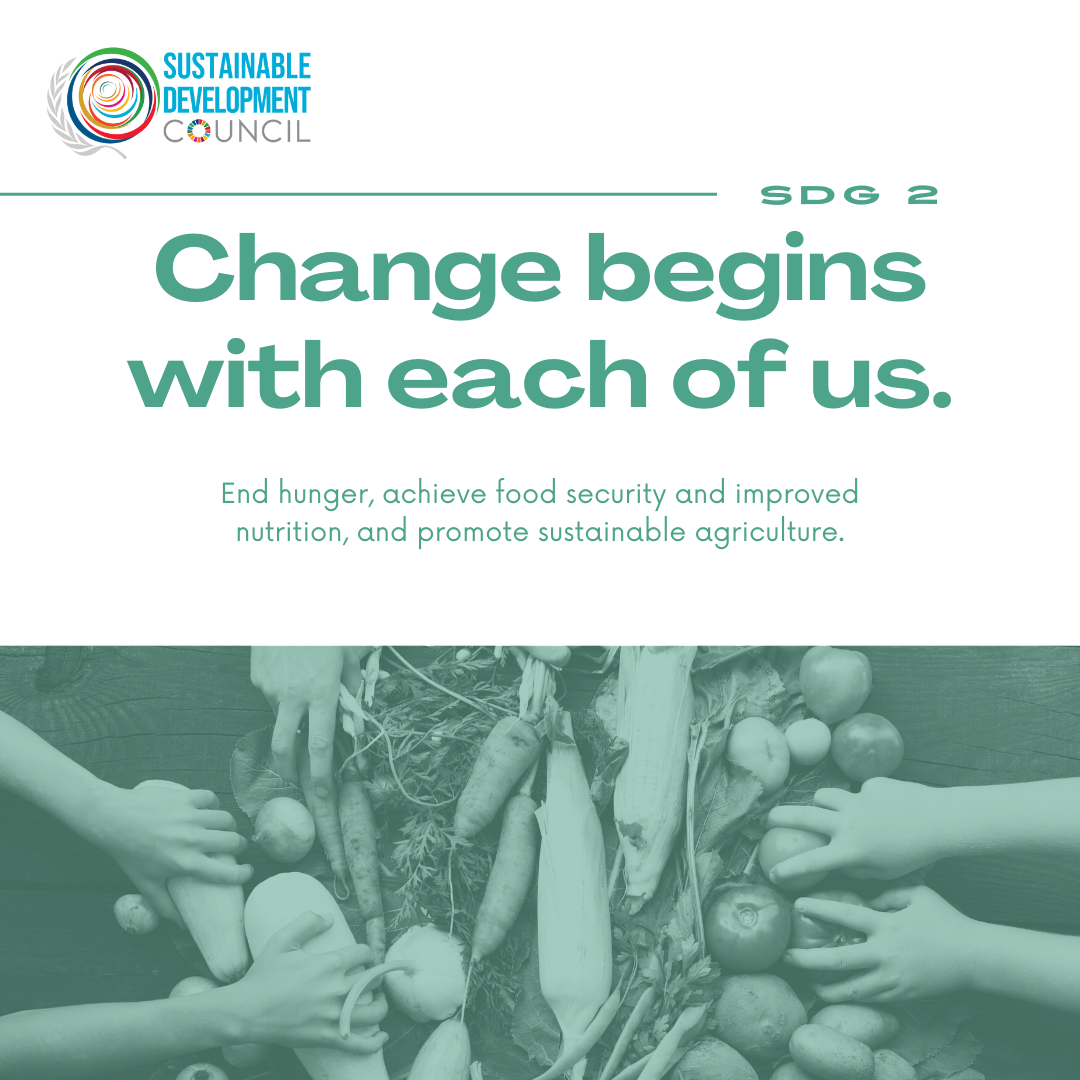ONE WORLD – No Hunger
This SDC-hosted international Summit explored how the chemical sciences—and engineering research and innovation—can contribute to progress toward the United Nations’ Sustainable Development Goal of “Zero Hunger”. Experts from government, industry, academia and nonprofit organizations provided a wide range of viewpoints during the summit, held virtually on December 5-8, 2022.
Topics Addressed:
- Impacts of Agriculture on Climate: Mitigation of Greenhouse Gasses
- Climate Impacts on Agriculture: Adaptation & Reducing Crop Stress
- Optimizing Crop Production
- Sustainable Food Packaging and Reducing Waste
Watch Now: Recordings from the ACS Zero Hunger Summit
Impacts of Agriculture on Climate: Mitigation of Greenhouse Gases
Agriculture contributes 19–29% of total greenhouse gas (GHG) emissions, which are likely to substantially rise unless rapid action is taken to transform agricultural practices. Solutions will require integrated approaches that address the mutually-dependent challenges of climate change and ability to feed the planet. In this session, experts will discuss how we evaluate the impact of agricultural practices on climate, and how we develop mitigation approaches to minimize its carbon footprint. These mitigation approaches aim to lower emissions per unit of food produced, minimize deforestation and utilize carbon in the atmosphere.
Climate Impacts on Agriculture: Enhancing Resilience
Recent changes in temperature, ozone, greenhouse gases and precipitation are having devastating impacts on crop, livestock, and fish production. To address the threat of growing food shortages in the coming decades, scientists must harness plant biology and chemistry to improve the resilience of crops and to more efficiently monitor and improve soil environments. This session convenes experts in the chemistry of crop resilience, crop adaptation through genetic modification, and deployment of specialized sensors for soil chemistry. Experts will discuss how the use of “smart” systems can help address some of these challenges and minimize the impact of agriculture on climate change.
Optimizing Crop Production: Increasing Productivity
The convergence of climate change, geopolitical turbulence and growing food demand is challenging agricultural practices in unprecedented ways. Sustainable solutions will require development of low-carbon growth enhancement products, safe and effective crop protection products and a pivot to smart systems that allow precise delivery. In this session experts will address innovations in the design of safe and biodegradable crop protection products, and soil supplements to address drought and enhance
production.
Food Packaging: Reducing Waste
It is estimated that one third of food produced globally is lost or wasted. Food packaging technology is critical to reducing food spoilage during transport and preserving shelf life. However, contamination of packaging with chemicals of concern and plastic waste are driving the need for alternatives to existing technologies. In this session, experts address challenges and opportunities associated with food waste reduction, innovations and design challenges in the chemistry of food packaging and, where waste cannot be avoided, strategies to convert food waste to valuable products.
Key Components:
- Global Awareness Campaign:
- Launching a comprehensive awareness campaign to highlight the magnitude of the global hunger crisis and promote a shared responsibility to end it.
- Community Engagement:
- Empowering local communities through educational programs, capacity-building initiatives, and sustainable agriculture practices to enhance food security at the grassroots level.
- Innovation Hub for Sustainable Solutions:
- Establishing an innovation hub to encourage research and development of sustainable technologies, practices, and policies that contribute to food security and address the root causes of hunger.
- Advocacy for Policy Change:
- Advocating for policy changes at local, national, and international levels to create an enabling environment for sustainable agricultural practices, equitable food distribution, and poverty alleviation.
- Collaboration with Stakeholders:
- Building strategic partnerships with governments, NGOs, businesses, and international organizations to leverage resources, expertise, and networks in the fight against hunger.
- Youth Involvement:
- Empowering youth as agents of change by involving them in educational initiatives, leadership training, and innovation challenges focused on sustainable agriculture and hunger eradication.
Expected Outcomes:
- Increased Global Awareness:
- A heightened global consciousness regarding the urgency of addressing hunger and the importance of collective action.
- Community Empowerment:
- Empowered communities equipped with the knowledge and resources to achieve food security sustainably.
- Innovative Solutions:
- A repository of innovative solutions and best practices for sustainable agriculture and hunger alleviation.
- Policy Reforms:
- Positive policy changes at various levels that support sustainable food systems, equitable distribution, and poverty reduction.
- Global Collaboration Impact:
- Tangible progress towards the UN Sustainable Development Goal 2 – Zero Hunger through enhanced international collaboration and shared responsibility.
Call to Action: Join the “ONE WORLD – No Hunger” initiative and be part of a global movement to ensure a future where every person has access to sufficient, safe, and nutritious food. Together, let’s build a world where hunger is eradicated, and no one is left behind.





